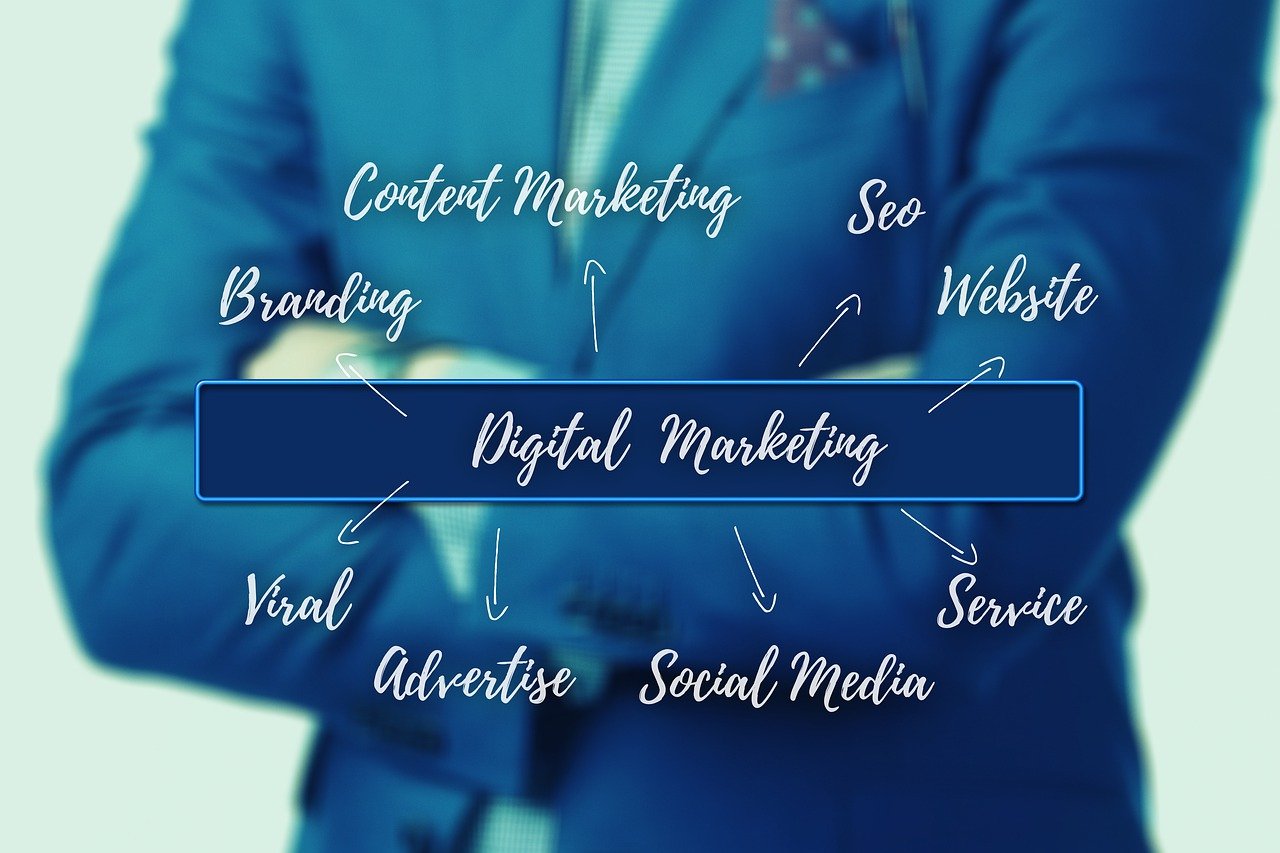Digital marketing offers UK small businesses 3X better ROI than traditional methods, with targeted strategies like SEO and social media enabling them to compete effectively against larger companies. Real-time analytics help optimize campaigns as SMEs prepare to invest £35 billion in marketing for 2024-2025.
Take a look at our other article on digital services here: https://amzoraltd.com/local-seo-services-for-small-business-experts/
Digital Marketing Services in UK for Small Business Expansion
Key Takeaways:
- Digital marketing provides UK small businesses with cost-effective ways to reach targeted audiences, delivering 3X better ROI than traditional advertising methods
- Small businesses can effectively compete with larger competitors through strategic digital marketing services like SEO, PPC, and social media marketing
- Real-time analytics and performance tracking allow small businesses to optimize campaigns and measure tangible results
- Digital marketing strategies are helping small businesses expand beyond local markets to nationwide or even global audiences
- The projected £35 billion spend on marketing by UK SMEs in 2024-2025 highlights the critical role of digital channels in business development
5 Proven Digital Marketing Strategies Transforming UK Small Businesses
Digital marketing has changed how small businesses in the UK reach customers and grow their operations. With the right approach, even the smallest companies can achieve remarkable visibility and results that were once only possible for businesses with massive budgets. Content Marketing Agent has observed this transformation firsthand, as more small businesses use digital channels to overcome traditional barriers to growth.
The digital world offers unprecedented opportunities for small businesses that previously couldn’t compete with larger companies’ marketing budgets. Today, a well-executed digital strategy allows local shops, service providers, and startups to reach precisely the customers they need, build lasting relationships, and measure exactly what’s working—all while maintaining control over costs and maximizing return on investment.
What makes digital marketing so effective for small businesses is its ability to level the playing field. A thoughtfully designed website, strategic social media presence, and targeted advertising can put a one-person operation in front of the same customers as industry giants. Plus, the flexibility to start small and scale gradually makes digital marketing accessible to businesses at every stage of growth.
Why Digital Marketing Is Essential for Small Business Growth
1. Reach precision-targeted customers at 1/3 the cost of traditional advertising
Digital marketing allows small businesses to identify and reach specific customer segments with remarkable precision. Unlike traditional advertising that broadcasts messages to broad audiences, digital channels let you target based on demographics, interests, behaviors, and even purchase intent. This targeted approach means your marketing budget goes further, delivering better returns at a fraction of the cost of print, radio, or TV campaigns.
Small businesses can reach exactly the right people at exactly the right time, particularly when they’re actively searching for your products or services. A local bakery, for instance, can target ads to appear when nearby customers search for “fresh bread” or “birthday cakes,” ensuring marketing spend reaches only those most likely to convert.
2. Track and measure real ROI with comprehensive analytics
One of the most powerful advantages of digital marketing is the ability to measure results with precision. Every click, view, and conversion can be tracked, giving small businesses unprecedented insight into what’s working and what isn’t. This real-time feedback loop allows for continuous optimization of campaigns, ensuring marketing budgets are invested in strategies that deliver results.
With digital analytics, small businesses can understand the complete customer journey from initial awareness to final purchase. A plumber can see exactly which keywords bring in the most service calls, which pages on their website convert best, and even which times of day yield the highest booking rates – insights that were previously available only to large corporations with substantial research budgets.
3. Build stronger customer relationships through multiple touchpoints
Digital marketing enables small businesses to maintain ongoing relationships with customers through various channels. Email marketing, social media engagement, and content marketing all provide opportunities to deliver value beyond transactions. These touchpoints help build brand loyalty, encourage repeat business, and transform satisfied customers into brand advocates.
By consistently engaging with your audience across platforms, you can create a community around your brand and establish yourself as a trusted authority in your field. This relationship-building aspect is particularly valuable for service-based businesses where trust is essential to the purchasing decision.
4. Compete effectively against larger businesses with limited budgets
Digital marketing creates a more equal playing field, allowing small businesses to compete with much larger companies. While big corporations have bigger budgets, small businesses often have advantages in agility, authenticity, and local market knowledge. Digital channels let you highlight these strengths and carve out your unique market position.
With strategic use of search engine optimization, local SEO, and targeted advertising, small businesses can appear alongside—or even above—larger competitors in search results and social feeds. A boutique clothing store with clever social media content can gain more engagement and loyalty than a national chain, despite the disparity in marketing resources.
5. Expand beyond local markets to nationwide or global audiences
Perhaps most transformative is digital marketing’s ability to break geographic barriers. Small businesses are no longer limited to customers within driving distance. With e-commerce capabilities, digital marketing strategies, and even simple tools like Google Business Profile, UK small businesses can reach customers across the country or around the world.
This expanded reach opens new growth opportunities without the substantial investment traditionally required for market expansion. A craftsperson in Cornwall can sell handmade items to customers in Edinburgh, or even export to international markets, all through effective digital marketing.
Core Digital Marketing Services Small
Businesses Need
1. Search Engine Optimisation (SEO)
SEO helps your business appear in organic search results when potential customers are looking for your products or services. For small businesses, local SEO is particularly valuable, helping you rank for searches in your geographic area. A strong SEO strategy includes optimizing your website structure, creating valuable content, building quality backlinks, and ensuring your business appears in local listings.
The beauty of SEO for small businesses is its long-term value. While it takes time to build, the traffic it generates continues without ongoing ad spend, making it increasingly cost-effective over time.
2. Pay-Per-Click Advertising (PPC)
PPC advertising lets you place ads on search engines and other digital platforms, paying only when someone clicks on your ad. This model offers exceptional control over budgets and targeting. Google Ads is the most prominent platform, but options like Microsoft Advertising, Facebook Ads, and LinkedIn Ads each offer unique advantages depending on your business model and target audience.
For small businesses with limited budgets, PPC provides the flexibility to start small and scale up as results prove successful. You can set daily budgets as low as £5 and adjust based on performance data.
3. Social Media Marketing

Social media platforms allow small businesses to build communities, share content, and engage directly with customers. Each platform offers different opportunities—Instagram and Pinterest for visual products, LinkedIn for B2B services, Facebook for community building, and TikTok for reaching younger audiences.
Effective social media marketing combines organic content with paid promotion to maximize reach and engagement. The personal, authentic nature of social media gives small businesses a natural advantage over corporate competitors who often struggle with authenticity.
4. Content Marketing
Content marketing involves creating valuable, relevant content to attract and engage a specific audience. Blog posts, videos, podcasts, infographics, and guides demonstrate expertise while answering customer questions. This approach builds trust and authority while supporting your SEO efforts by providing content that ranks for relevant searches.
Small businesses often excel at content marketing because they have deep expertise in their niche and can share genuine insights that larger companies might miss.
5. Email Marketing

Email remains one of the most effective digital marketing channels, offering direct access to your audience and exceptional return on investment. Small businesses can use email marketing for newsletters, promotional offers, abandoned cart recovery, and nurturing leads through the sales funnel.
Personalization and segmentation make these communications increasingly relevant to recipients. With average returns of £42 for every £1 spent, email marketing is particularly valuable for small businesses with limited marketing budgets.
6. Website Optimisation & CRO
Your website serves as the hub of your digital presence, and optimizing it for conversions is crucial. Conversion Rate Optimization (CRO) involves testing different elements of your site to increase the percentage of visitors who take desired actions. This includes improving page speed, streamlining checkout processes, enhancing mobile responsiveness, and creating compelling calls to action.
Even small improvements in conversion rates can dramatically impact revenue, making this an essential focus for growing businesses.
7. Analytics & Performance Tracking

Data-driven decision making is at the heart of effective digital marketing. Analytics tools like Google Analytics provide insights into website traffic, user behavior, conversion rates, and campaign performance. This information helps small businesses understand their digital marketing ROI and make informed decisions about where to invest resources.
The ability to measure and attribute results across channels gives small businesses unprecedented clarity about what’s working, allowing for continuous optimization and improvement.
Leading UK Digital Marketing Agencies for Small Businesses
Small business specialists vs. general agencies
When selecting a digital marketing partner, small businesses face an important choice between general marketing agencies and those specializing in small business needs. General agencies may offer broader capabilities but often set minimum budgets and service packages designed for larger companies. In contrast, small business specialists understand the unique challenges of limited resources, tighter budgets, and the need for strategies that deliver immediate results.
Small business specialists typically offer more flexible contracts, scalable service packages, and pricing structures designed for growing companies. They also tend to have deeper experience with local SEO, reputation management, and regional marketing strategies that are particularly valuable for small businesses operating in specific communities or regions.
Top 5 UK agencies with proven SME track records
The UK market features several standout agencies dedicated to helping small businesses succeed with digital marketing. Companies like Add People and The Small Biz Expert focus exclusively on SME clients, offering tailored services that match small business budgets and objectives. Other notable specialists include Logicsofts, which excels in technical SEO for local businesses, and Dandy Marketing, known for transparent pricing and monthly rolling contracts without long-term commitments.
What sets these small business specialists apart is their understanding of the unique challenges faced by SMEs. They typically offer more personalized service, practical strategies that drive immediate revenue, and reporting that focuses on business outcomes rather than vanity metrics. Amzora Limited similarly approaches digital marketing with a focus on practical results that directly impact a small business’s bottom line.
Questions to ask before hiring an agency
Before partnering with a digital marketing agency, small business owners should ask:
- What experience do you have with businesses in my industry and of my size?
- How do you measure success, and what reporting will I receive?
- What does your typical onboarding process look like?
- Do you require long-term contracts, or do you offer flexible arrangements?
- Who will be my day-to-day contact, and how often will we communicate?
- Can you provide case studies or references from similar businesses?
- How do you stay current with digital marketing trends and algorithm changes?
- What makes your approach different from other agencies?
The answers to these questions will help determine if the agency truly understands small business needs and can deliver the personalized service required for success. Look for agencies that speak in terms of business results rather than technical jargon, and who show genuine interest in understanding your specific business challenges.
2025 Digital Marketing Trends Reshaping Small Business Growth
Brand recognition and visibility beyond click metrics
The digital marketing field is moving beyond simple click-through rates and immediate conversions. As consumer journeys become more complex—often involving 10+ touch-points before purchase—brand recognition is emerging as a critical success factor. Small businesses are increasingly focusing on building brand visibility and memorability rather than just driving immediate clicks.
This shift means investing in consistent branding across platforms, creating memorable visual assets, and developing distinctive brand voices that stand out in crowded markets. For small businesses, this represents an opportunity to compete on authenticity and personality rather than just advertising spend. A local bookshop, for instance, might focus on building a recognizable brand voice through social media storytelling rather than competing solely on price with online giants.
The evolution of search: platforms beyond Google
While Google remains dominant, consumers are increasingly using alternative platforms for product and service discovery. YouTube, Instagram, TikTok, and even Amazon are becoming primary search engines in their own right. Small businesses need to optimize their presence across these platforms, not just on traditional search engines.
This multi-platform approach requires adapting content formats (video, images, audio) and optimization strategies for each platform’s unique algorithms and user behaviors. A small fashion retailer, for example, might focus on creating shoppable Instagram posts and TikTok videos that showcase products in use, rather than relying solely on Google search traffic.
AI-powered automation transforming campaign management
AI tools are changing how small businesses approach digital marketing. From content creation to campaign optimization, AI-powered tools are making sophisticated marketing techniques accessible to businesses without large teams or specialized expertise.
Small businesses can use AI for automated email sequences, chatbots for customer service, content generation, and even predictive analytics to identify trends and opportunities. A one-person consultancy might use AI tools to create and schedule social media content, analyze engagement patterns, and automatically nurture leads—tasks that would otherwise require a dedicated marketing team.
Find some great AI tools here: https://aitoolsdirectory.com/
Social commerce integration for direct sales
Social media platforms have evolved from marketing channels to direct sales platforms. Instagram Shops, Facebook Marketplace, Pinterest Shopping, and TikTok Shop are changing how consumers discover and purchase products. This shift creates opportunities for small businesses to sell directly through social channels, reducing friction in the buying process.
Implementing social commerce allows small businesses to shorten the customer journey, creating seamless experiences from discovery to purchase without requiring users to visit external websites. A small ceramics studio, for instance, could tag products in Instagram posts, allowing followers to purchase immediately without navigating to a separate e-commerce site.
Podcasting for niche audience engagement

Podcasting continues to grow as a marketing channel, with particularly strong engagement among affluent, educated audiences. For small businesses targeting niche markets, podcasting offers an opportunity to build deep connections with highly engaged listeners.
Whether hosting your own podcast or appearing as a guest on relevant shows, this medium allows for in-depth discussion of topics relevant to your audience, establishing authority and building trust in ways that shorter-form content cannot match. A financial advisor might create a weekly podcast discussing investment strategies, building credibility while reaching potential clients during their commutes or workouts.
Transform Your Small Business with Strategic Digital Marketing
The digital marketing world offers unprecedented opportunities for UK small businesses to grow, compete, and thrive. With UK SMEs projected to spend over £35 billion on marketing in 2024-2025, it’s clear that digital channels have become central to business development and competitiveness. The key is developing a strategic approach that aligns with your specific business goals, target audience, and available resources.
What makes digital marketing so powerful for small businesses is its scalability and measurability. You can start with modest investments in the channels most relevant to your audience, measure the results, and gradually expand your efforts based on proven performance. This data-driven approach minimizes risk while maximizing return on investment—exactly what small businesses need to grow sustainably in competitive markets.
Content Marketing Agent specializes in helping UK small businesses develop and implement digital marketing strategies that drive measurable growth and provide genuine competitive advantage in an increasingly digital marketplace.



Pingback: Lead Magnet Ideas for Local Service Business with Checklist Examples